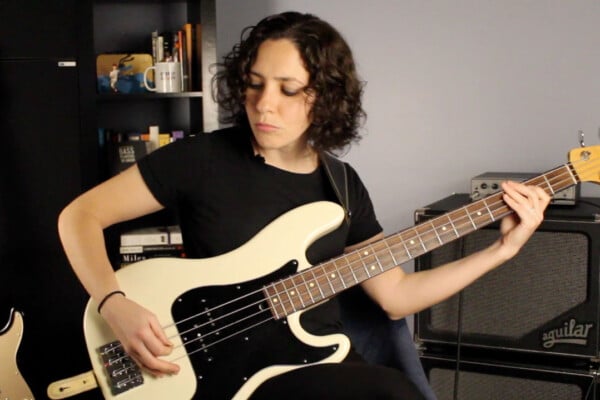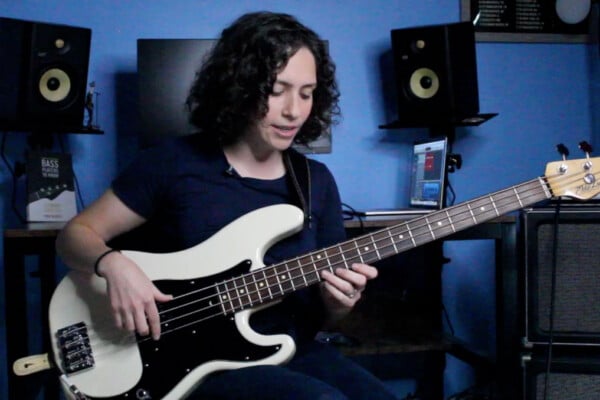The Lowdown with Dr. D.: Three Requirements of Attainment (Part 2 of 3: Teacher)
The Teacher
The second requirement for the attainment of any skill is a teacher. A good teacher can enhance learning efficiency, streamline progress and illuminate method.
You can certainly learn without a teacher and there is a vast amount of information available to us: DVDs, video demonstrations, books, columns, articles, etc. While these can be valuable resources, without one-to-one instruction from a competent teacher it is difficult – although not impossible – to get effective results.
There are several reasons why a teacher is beneficial, but one of the primary advantages is that a teacher can explain the finer points of instrumental technique, musicality, and musicianship, as well as guide you in overcoming you own individual problems. These are things that cannot be learned through pre-packaged material.
Finding a teacher is generally easy to do, but finding a high-quality teacher can sometimes present a challenge, especially if you are uncertain of what to look for.
Here are some characteristics I suggest you look for in a teacher:
- The Teacher should have achieved a reasonably high level of performance. Hearing someone perform is an ideal way to determine this, but at times this is not feasible. Some excellent teachers teach more than they perform, some are retired from the stage, and others perform only as a background or section player. You can sometimes look to their formal musical education as an indicator. Of course, many master players never earned a degree of any sort, so be discerning when viewing such certifications. While a music degree generally connotes some minimum level of playing was achieved, it is certainly not infallible proof of mastery. Remember that you are looking for qualification and not certification. Unless you have already achieved a reasonably high level of skill for yourself and are looking for a fresh approach, I also suggest that you avoid guitarists, cellists or other instrumentalists who “picked up” the Upright Bass over the weekend. If you want to be a master, study with a master, not a dabbler.
- The Teacher should be knowledgeable and able to communicate that knowledge. Having achieved a high level of performance is ideal, but it often gives no indication of teaching effectiveness. While some great players are great teachers, not all great players are great teachers. In fact, some of the worst teachers are players of the highest rank. Teaching is a discipline and art all it’s own. A teacher must not only understand how to do something, but be able to clearly communicate that process to a student. Look for this quality in your teacher and you will benefit.
- The Teacher should have a plan for your advancement, ideally based on your individual goals and objectives. The old axiom “Failing to plan is planning to fail” holds true here. One of the things you are paying your teacher for is a personalized educational plan. You may not know the entirety of the plan at every moment, but you should have a general sense of direction. At the micro-level, you should at least know what you should be practicing for your next lesson.
- The Teacher should have a passion for teaching. A person who loves what they do will strive to do superior quality work. Look for this quality in your teacher. If they are constantly expanding their knowledge and seeking to improve their effectiveness, this will be to their students’ benefit. You can often tell if someone is passionate about something by the intensity of their interest. They may not be bouncing off the walls with physical excitement, but a teacher who doesn’t enjoy their work will put in only the minimum effort required to take your money. If you are unsure whether someone likes teaching, you can always just ask. If you ever hear your teacher state they do not like teaching, you should run, not walk, out the door and into someone else’s studio.
- You should be able trust your teacher implicitly, at least as it concerns your bass education. If you find that you do not trust their guidance, and cannot rectify the situation, you should discontinue study. If you do not, then at best, you will be second-guessing your teacher, which will demonstrably slow your progress and waste everyone’s time. Certainly if your teacher is doing anything as wildly unethical as giving you unwelcome personal attention, which unfortunately happens, you should leave that studio immediately.
There are some situations when a competent teacher is not available you. In these cases I advise that you study on your own. Having no teacher is better than suffering a bad one…and cheaper. Keep in mind, however, that in this age of video-conferencing software, it is only in the case of financial hardship or lack of facilities (i.e. no webcam, broadband, etc.) that a high-quality teacher is not available to you. In our world, geographic location is no longer an impediment to pursuing high-level instruction. Once you find a teacher, I suggest a one-year trial period, barring serious problems. After a year of study, you should be well-equipped to evaluate your teacher-student situation.
Although regular weekly lessons usually provide for maximum progress, don’t forget that there are workshops, conventions, clinics and masterclasses that can provide you months of material to study. Seek these events out, even if you have a great teacher.
A good teacher is an excellent asset, and one of the three Requirements for Attainment of skill. However, more important than the teacher is the student…
Dr. Donovan Stokes is on the faculty of Shenandoah University-Conservatory. Visit him online at www.donovanstokes.com and check out the Bass Coalition at www.basscoalition.com.



